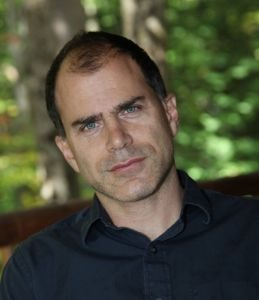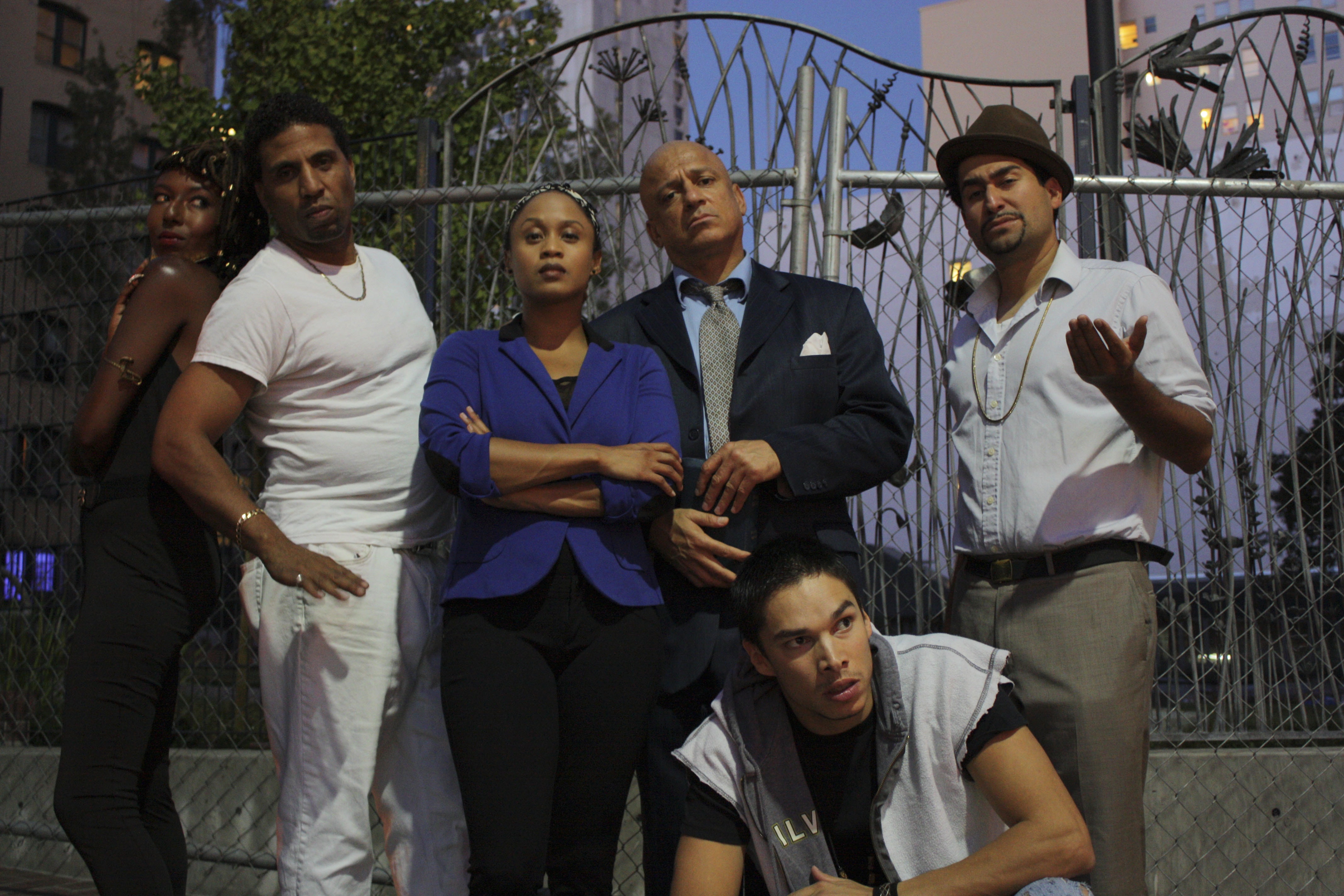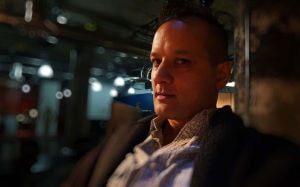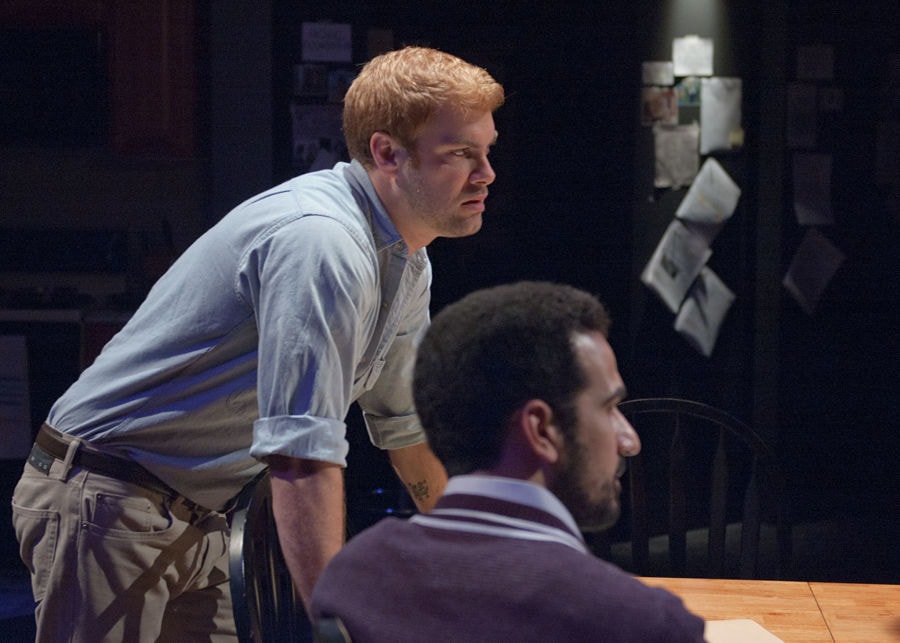A journalist is hot on the trail of a conspiracy whose scope seems ever-expanding. Nicknamed “The Octopus,” the plot connects shadowy private-security contractors with an international criminal bank, government piracy of law-enforcement database software, a corrupt Native American reservation where experimental weapons are developed, and even Reagan’s October Surprise.
The journalist hopes to break the whole story all at once and find fame and fortune. According to his book proposal (quoted in Jonathan Vankin and John Whalen’s The World’s Greatest Conspiracies), he’s after a “web of thugs and thieves who roam the earth with their weapons and their murders, trading dope and dirty money for the secrets of the temple.”
Before he leaves to meet a source in West Virginia, he warns his family that, if anything happens to him, they shouldn’t believe the official story. A few days later, he is found dead in his hotel room.
His name is Danny Casolaro, and the year is 1991. And though his death is immediately ruled a suicide, there are contradictory clues: The notes he brought are nowhere to be found; a maid claimed she saw bloody towels in the hotel room after the journalist’s death. The slash wounds on his arms lack hesitation marks, and the autopsy was performed after the journalist was embalmed, distorting the results and violating state law.
It sounds like a story straight out of a ’70s-era paranoid thriller, like The Parallax View or Three Days of the Condor. Except it’s all true. Casolaro really did investigate the government’s theft of database software—a quest that lured him into pursuing ever-larger and harder-to-confirm conspiracies. And he really did die under mysterious circumstances on his way to meet a source he believed might crack the whole case open.
Now, 23 years later, his story is the subject of Danny Casolaro Died for You by Dominic Orlando, a Minneapolis–based playwright who also happens to be Casolaro’s cousin. The play opened in October and runs through Dec. 21 at Chicago’s TimeLine Theatre, and it’s one of two shows this fall—along with Sean San José’s Superheroes (Nov. 21-Dec. 21), a coproduction of San Francisco’s Cutting Ball Theater and Campo Santo—that chronicle ’80s-era efforts to uncover government-led conspiracies and their consequences.

“I knew [Danny] very well,” Orlando says over the phone. “The Thanksgiving before he died, we actually talked, because I was writing a political farce about Latin America. We spent quite a bit of time talking about it. At that point, especially because I was younger and writing plays, I enjoyed it as a story. It didn’t occur to me that it was real. Then one day I got a call from my mother and picked up the phone and she said, ‘They got Danny.’ That’s how I learned he had died.”
Orlando’s play takes the audience from the beginning of Casolaro’s investigations up to his death via the memories of another real-life cousin, Thomas Vacarro. The play, which reads like a fast-paced political thriller, is based largely on research by Orlando into his family’s memories, a process that was occasionally fraught.
“About two years after he died I just started talking to everybody. Initially, I was probably not very conscious of people’s feelings,” Orlando says, laughing. Describing the initial workshop at New York Theatre Workshop, he says, “I think there was some stuff that was a little too close—people told me stories they did not mean for public conversation, and the fact that I was sitting there with a notebook was kind of lost on them.”
In revision, Orlando decided to approach rewrites by asking himself, “What do I need for the play, and how much is it worth for me to keep this in?” He opted to move the Thomas Vacarro character away from the real-life man, adding details from other members of the family to create a composite character less close to reality.
“He really didn’t want to be the main character of the play,” Orlando explains. “He didn’t care about the story elements—he just didn’t want someone to come and see it and say, ‘Oh, I know that guy!’”
Pacifying his own family wasn’t his only challenge. The conspiracy Casolaro chased—his so-called “Octopus”—was an ever-shifting Fata Morgana. What started as a fairly simple story about the government stealing software called PROMIS—a hub of law-enforcement databases—soon morphed into a shadow history of the 20th century, one in which the U.S. government regularly employed criminals to do its dirty work. As Danny laments in the play, “It’s all one story, and the only way to solve any of it is to solve all of it.”
Casolaro’s death prior to solving the puzzle also deprived the narrative of closure. In most fictional thrillers, whether the conspiracy succeeds or not, it is at least explained by the end. In Danny Casolaro Died for You, the conspiracy’s true face remains masked, and the title character spends his last months flailing about as people he thought he could trust—including other journalists—betray him.
That’s not because Casolaro didn’t solve the mystery; Orlando thinks he did, and Casolaro’s various draft writings back him up. Casolaro never published his findings, however, in part because he wanted to wait until he had the entire conspiracy in all of its complexities nailed down.
In this way, Casolaro is the textbook conspiracist hero: starting from a place of healthy skepticism, then skating further out onto the ice of coincidence and the unprovable, chasing the one witness who will tie everything together. In the end, the ice proved too thin and Casolaro fell through it—yet his reporting lives on. Spy magazine eventually published three stories based on Casolaro’s journalism.
Today, of course, few would find the idea that nefarious defense contractors occasionally use criminal means for personal enrichment—or that the government would knowingly work with criminals to accomplish things it was legally barred from doing—earthshaking. Casolaro was also one of the first people to write about two things—private security contractors and Native American casinos—that are now commonplaces of American life.
“In the main,” Orlando says, “what he was writing about was individuals making profit off of foreign policy.” Or, as Danny puts it in the play, “One part of the government is hiring criminals to get around the other. Trouble is, these guys don’t just vanish when the job is done—and they expect to get paid.”
One especially famous example of the government hiring criminals to get around its own rules forms the subject of Superheroes, written and directed by Sean San José. Superheroes is inspired by Dark Alliance, a 500-page book by the late Gary Webb, based on three articles he wrote for the San José Mercury News in the early 1990s. Webb’s book chronicles how the CIA avoided congressional restrictions to fund the Nicaraguan Contras by turning a blind eye to—and perhaps actively abetting—the importation of massive amounts of cocaine into the United States. The wholesale price of the drug cratered, and coke went from a luxury drug that was extremely difficult to obtain to a far more common substance.

Two Nicaraguan drug importers, Danillo Blandón and Norwin “King of Drugs” Meneses, started supplying a young, illiterate ex-tennis protégé named Richard Donnell Ross, right around the time when crack was invented. Ross, better known as “Freeway” Rick Ross, in turn became the first vertically integrated drug dealer in the United States—a true genius of capitalism who ushered in the crack epidemic in Los Angeles.
Several newspapers—including a team of journalists at the Los Angeles Times and former CIA asset Walter Pincus at the Washington Post—worked to destroy Webb’s career after the articles initially came out. Eventually, Webb died, supposedly by his own hand, after shooting himself in the head—twice. Today, Webb’s story is enjoying something of a resurgence: Kill the Messenger, a sympathetic film starring Jeremy Renner as Webb, opened in October, and most journalists now admit that Webb was, as the New York Times’s David Carr put it, “right in the main,” even if they take issue with some aspects of his reporting.
Webb may be getting posthumous vindication, but the hangover of the conspiracy he traced has yet to clear. “The effects of the crack epidemic that we’re living in are ever-present, and I don’t think we’ve responded to them in healthy or productive ways,” says Superheroes writer/director San José. “I was aware of that in an unconscious way, and then I read the articles Gary Webb wrote. Then a few years later he put out the book, and it really put…the lens on something we had always suspected. In my performance way I thought, ‘We should get this information out there.’”

What San José learned as he worked on the project was that “trying to restate what Webb had written was both insanely difficult in a theatrical piece, and missed the point of the present situation.” The story was “far too complicated,” and San José wanted to address the “reality of what had been allowed to happen in all of our neighborhoods.”
His solution was to take the events described in the book as a given. As San José puts it, “If Dark Alliance is the reality, what forces are at work that are going to acknowledge that truth?” The resulting play, Superheroes, is about as far away as Danny Casolaro Died for You as a theatrical piece can be.
Where Casolaro is realistic, Superheroes is impressionistic, filled with “flashes” instead of scenes, highly stylized monologues, choreographed interludes and a chronologically scrambled plot that purposefully never quite coheres. Where Casolaro uses real-life people, Superheroes fictionalizes, adding made-up characters and replacing Freeway Rick, Norwin Meneses and Gary Webb with stand-ins named Free Rich, Bayuncoso and Aparecida, who narrates the play from beyond the grave.
While it may be a dubious tribute to Webb to give credit for the story that defined (and possibly cost) his life to a made-up character, San José contends that Aparecida was inspired by “thinking about my neighborhood and the people I know who are affected by the crack epidemic. I thought if Gary Webb’s information is our guide or our map, it becomes a theatrical thing. Using that poetically became having a ghost as our narrator.”
The fictional Free Rich, meanwhile, is based heavily on Rick Ross, while still remaining an invention. The resulting character reads a bit like the Freeway Rick of Dark Alliance mixed with The Wire’s Avon Barksdale, or perhaps the title character of Superfly. Whereas in the book Freeway Rick talks like this: “Once I started playing tennis, we’d start practicing as soon as school was out, so we’d get off the tennis court probably around 6 or 7,” Free Rich is more likely to say, “They gonna see your nigga vato ass after they bus’ in the door—and then it ain’t no slow-motion Bonnie and Clyde.”
Superheroes and Danny Casolaro Died for You both raise ethical questions about responsibilities to the true-life stories that form their basis—possibly more than the usual biographical play, given their shadowy subject matter. For Orlando, these questions are personal, and center on fairly treating his sources, who are likely to give him what-for around the Thanksgiving table should he screw up. For San José, the questions are instead surround what can responsibly be changed when you take a true story and adapt it to your community’s needs.
The plays have such diverging approaches, though, because each is trying for a different kind of truth. Casolaro dramatizes a series of factual events to tell a story the audience has probably never heard, whereas Superheroes relies on invention to get at the beating heart of the crack epidemic and the AIDS crisis. In their own ways, both question the official stories and consensus histories we’ve come to know, just as surely as their investigator protagonists seek the truth.
The rest is silence.
New York City–based writer Isaac Butler writes regularly about theatre.


